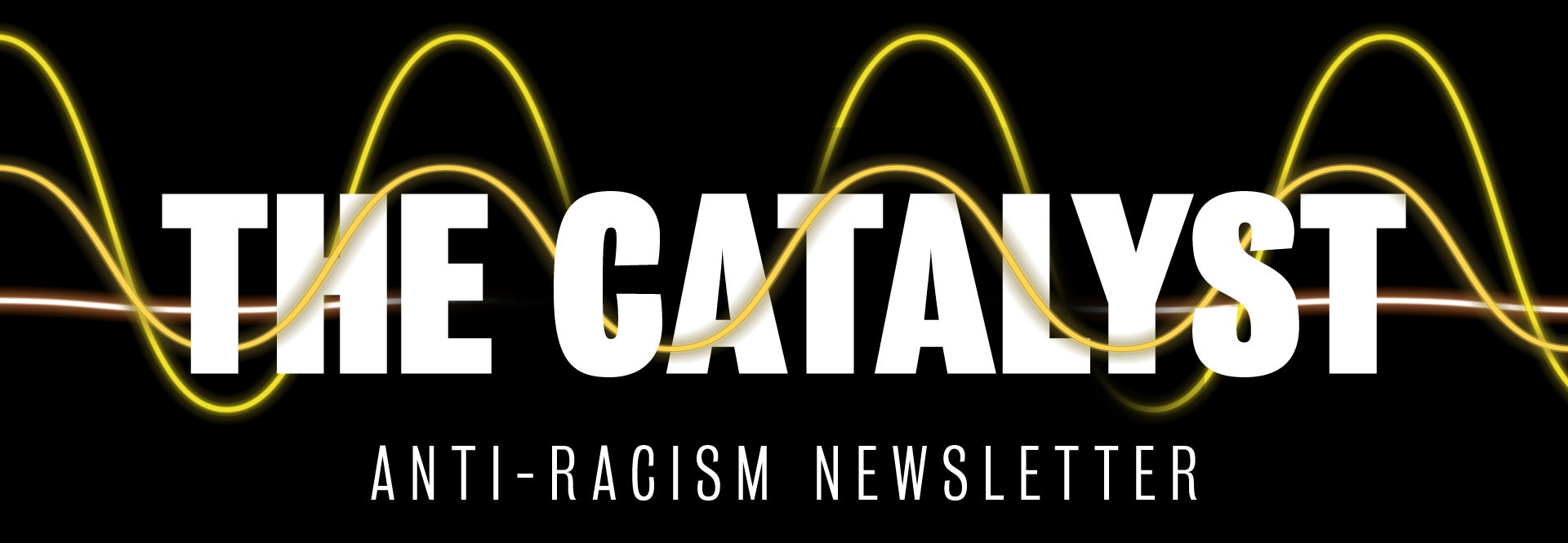
Welcome to the 16th issue of The Catalyst Anti-racism newsletter.
The Catalyst provides the University community with monthly updates from individuals and teams working across campus to counter systemic racism and oppression and highlights excellence from Black, Indigenous and other racialized groups.
Click here to read past issues of the Catalyst.
In this issue:
- President Goel reflects on the Indigenous Commitment Ceremony
- Commitment Ceremony signals a new beginning for Indigenous Peoples and the University of Waterloo
- University Relations to launch Inclusive Communications guide
- Meet Kevin George, Meet Kevin George, Indigenous Special Projects coordinator
- Reconciliation through art
- National Day for Truth and Reconciliation at the University of Waterloo
- Truth and Reconciliation in Higher Learning Institutions webinar
- Robin Stadelbauer appointed as associate director in the Office of Indigenous Relations
- The Equity, Diversity, Inclusion and Anti-racism office’s Fall 2022 Competency and Capacity Building offerings
Subscribe to The Catalyst to receive each issue directly to your inbox
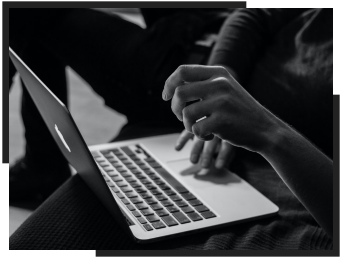
Message from the Chair
President Goel reflects on the Indigenous Commitment Ceremony
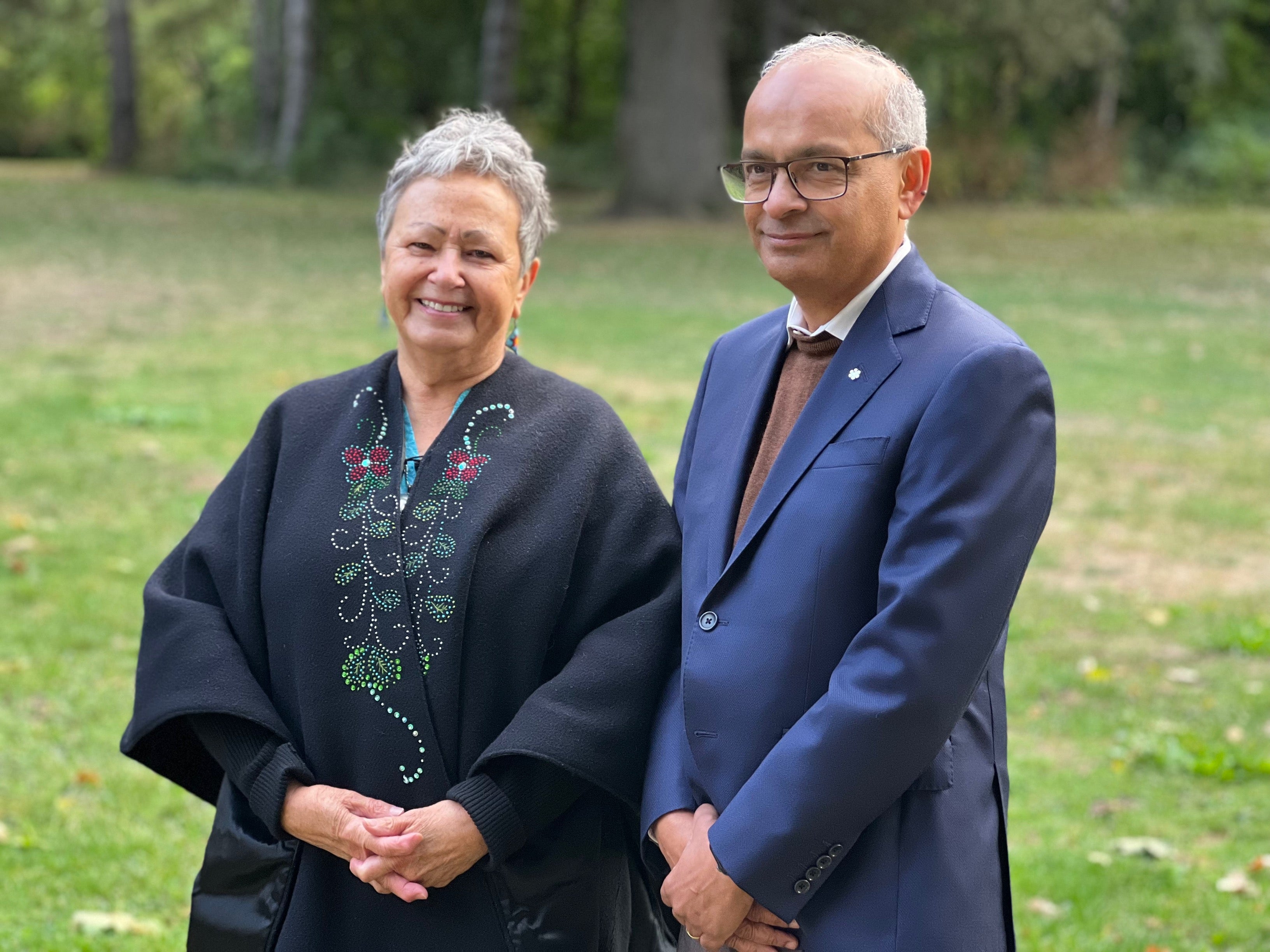
The Commitment Ceremony was truly an historic and momentous occasion for our institution as we affirmed our commitment to Reconciliation, Indigenization and decolonization. I was honoured to offer both my personal commitment and my commitment as president and vice-chancellor of the University of Waterloo.
I am grateful to have witnessed and participated in the sacred traditions and ceremonies in recognition of this commitment. The Sunrise Ceremony is a deeply spiritual and sacred ceremony conducted to welcome a new day and give thanks. It also represents new beginnings. It is my hope that today marks a new beginning for the University of Waterloo and Indigenous peoples across our campuses and in our communities.
Read the entire blog on the President's website.
Anti-racism across campus
Commitment Ceremony signals a new beginning for Indigenous Peoples and the University of Waterloo
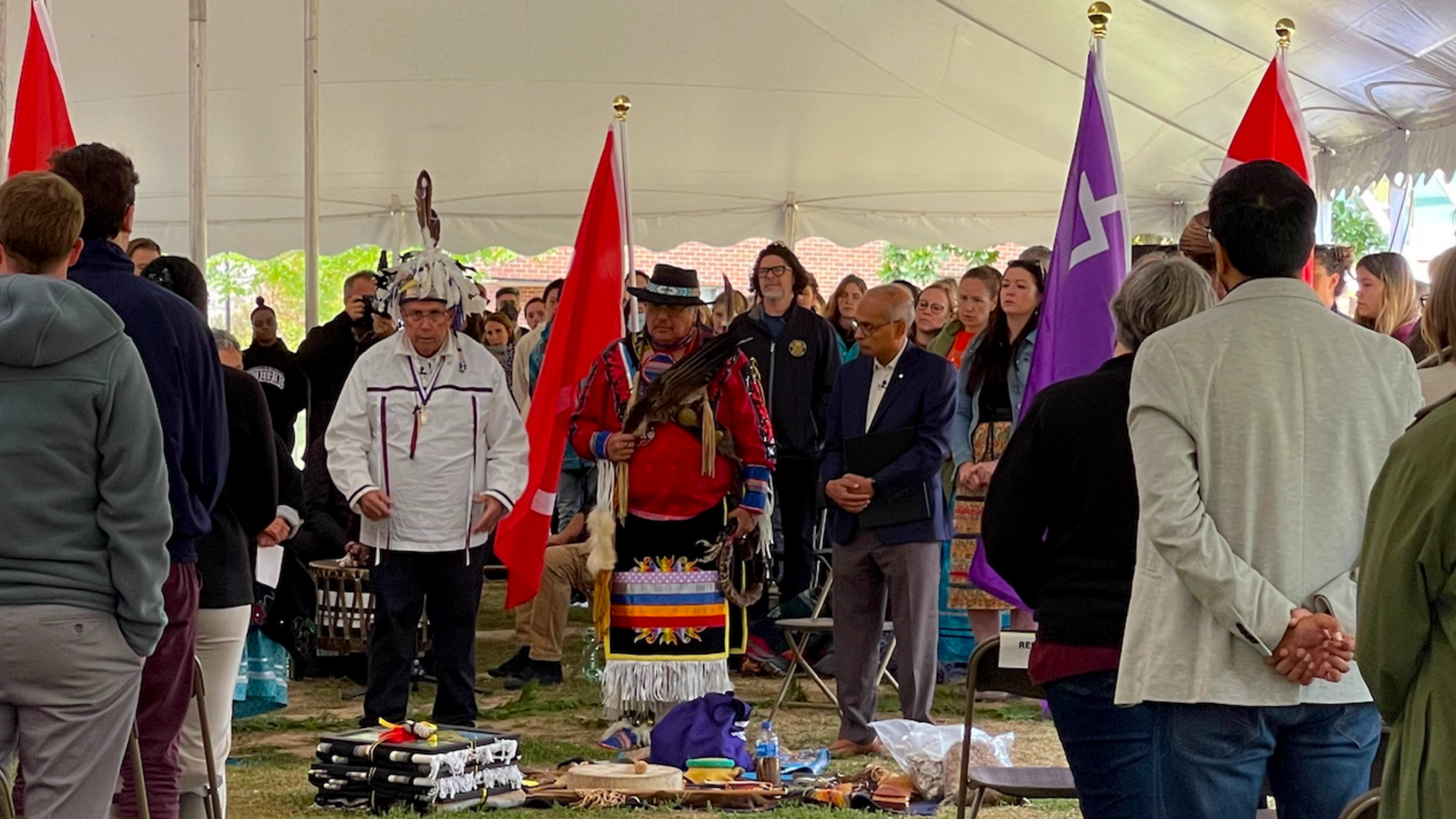
The Indigenous Peoples of the University of Waterloo asked Vivek Goel, Waterloo's president and vice-chancellor, for a full commitment to reconciliation, Indigenization and decolonization at the institution. Goel acknowledged the University’s full commitment through a formal Commitment Ceremony.
“As an institution of learning, the University has a unique role to play in working towards truth and reconciliation,” Goel said. “We must ensure that Indigenous knowledge and ways of knowing are represented in our scholarship, research and teachings.”
Read the entire article on the Waterloo News website.
University of Waterloo launches Inclusive Communications guide
A Message from Nick Manning, associate vice-president, Communications
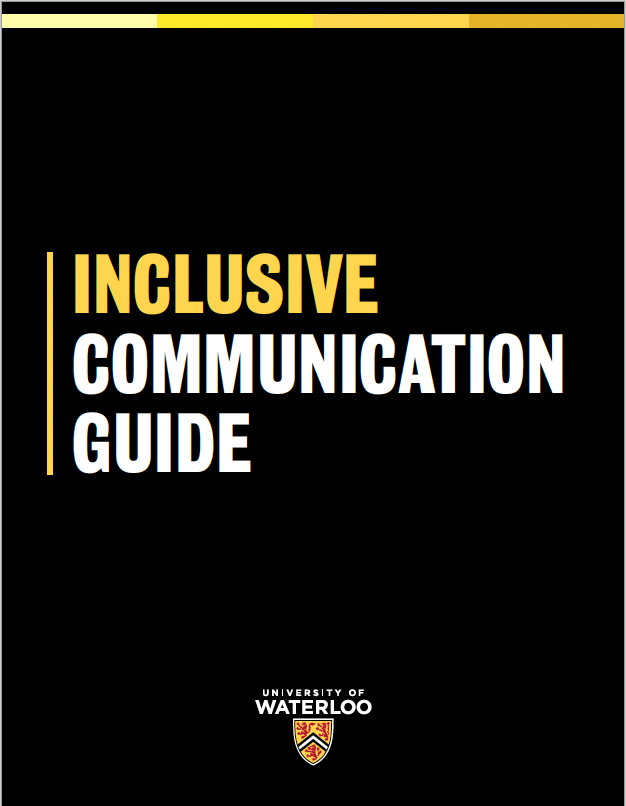
I am extraordinarily proud to introduce this guide to inclusive communications at the University of Waterloo. This is a document developed by more than 30 dedicated and caring communicators who responded to a call to action to consolidate advice and guidance on ways we can make professional communications at Waterloo more inclusive for the audiences that we serve.
As the campus-wide team developed this guide we kept a few important principles in mind:
Waterloo is committed to inclusive communications
We understand that this resource is a step in a long journey to keep learning and adjusting to the people and communities we serve and the audiences we reach. All of us who work to support communication with any audience have a responsibility to make our work deliberately inclusive of the audiences we serve.
We’re not in the business of checklist equity
This is not a guide designed to give communicators simple checks to mark off in the development of communication materials. To serve audiences faithfully, communicators need to “do the work” and invest the time into understanding how our words, images and plans affect the people we are speaking with.
We’ll stay flexible, because things change
Best practices, advice and guidance will change over time, and may differ depending on the perspectives of individuals or groups you are featuring in your work. This document provides general guidelines – each project will have specific and unique nuances that influence the language, images, design elements and channels that we select.
This guide is a living document that will continue to evolve, so please let us know if we have missed anything or if you have any questions by contacting us at urcomms@uwaterloo.ca.
We have used many external resources to help build our guide, as well as our own knowledge and that of the University community. The team, which developed this guide learned lessons together. We hope that this guide provides you with the resources and guidance you need to help you in your journey to being an inclusive communicator.
As communicators, our work is inspired by and reflective of the diverse community of individuals that make Waterloo. I am sure that the care and concern that our campus-wide communication teams have shown in developing this guide shines through. I hope this guide contributes to Waterloo’s strategic plan commitment to “make an impact on its campuses and around the world by fostering inclusivity, a sense of belonging and a culture of involvement.”
On behalf of everyone who contributed to this guide:
Thank you for reading and thank you for committing to inclusive communication practices.
You can find the guide on the University Relations website.
Staff feature
Meet Kevin George, Indigenous Special Projects coordinator
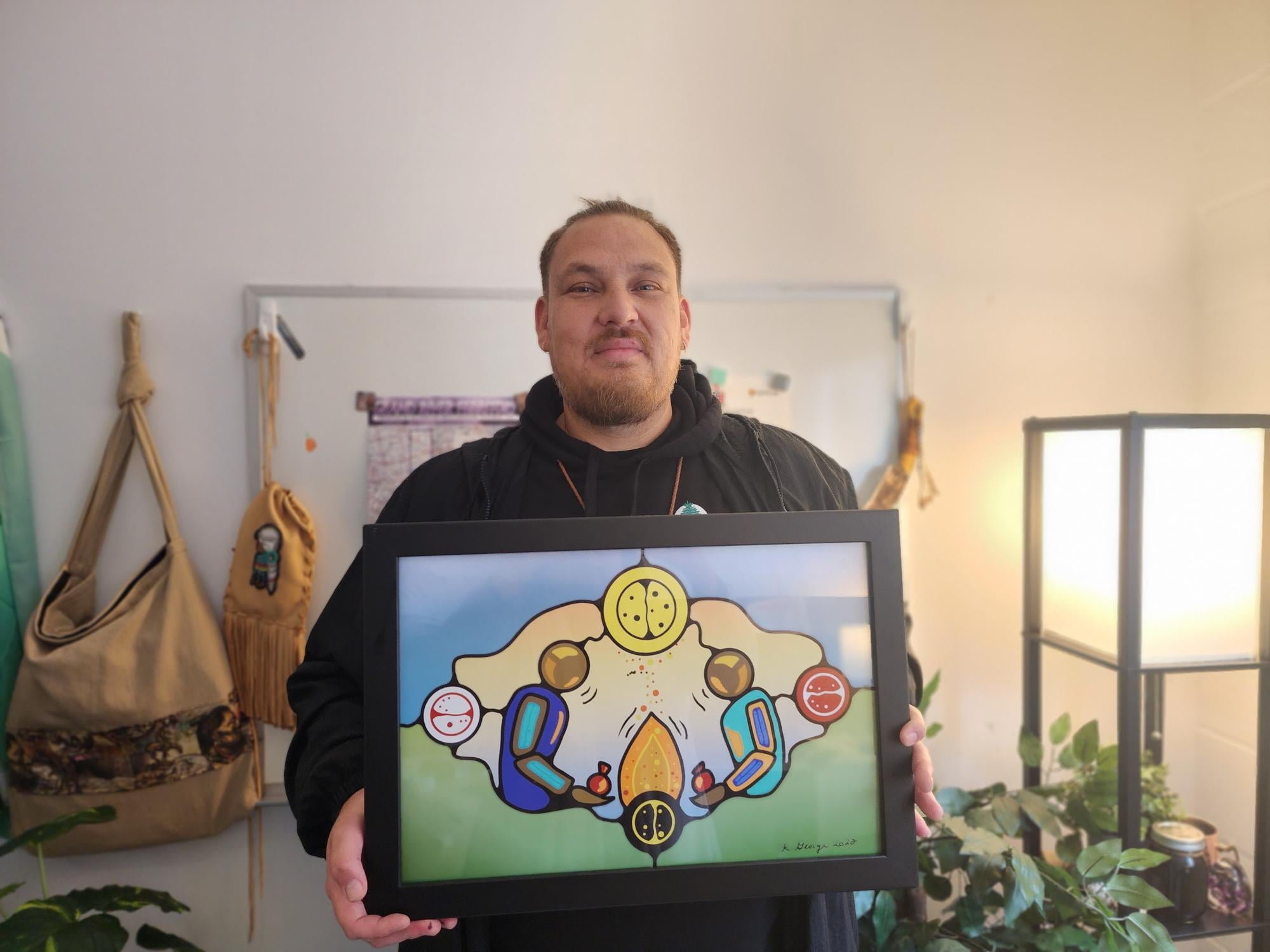
Kevin George (spirit name, Thunder Coming In The Distance) is the new Indigenous Special Projects coordinator in the Office of Indigenous Relations. He Anishinaabe, Nehiyaw, Cree and Potawatomi with European heritage, who belongs to the Fish Clan. His home community is Kettle and Stony Point First Nation, located on the beautiful shores of Lake Huron. He also maintains close connections with his family on Fort McMurray 468 First Nation in northern Alberta.
As an urban Indigenous person, who has lived experience of the struggles and obstacles faced by Indigenous folks and other marginalized groups, Kevin George has a deep understanding of supporting folks to overcome barriers, while promoting family, community and culture. He has worked with youth and adults, who are at risk of difficult and dangerous life outcomes, and also has extensive volunteer experience in coaching youth basketball and organizing community events.
In this new role, Kevin George is pleased to be able to utilize his talents and expertise to support the Office of Indigenous Relations in implementing strategic initiatives to help support decolonization and indigeneity at the University of Waterloo.
“I have been given the opportunity to continue my path of helping and building in such a meaningful way,” he said. “The goals of the Truth and Reconciliation Commission, decolonization and indigenization are immensely complex and require the right people, commitment and work. I feel the University of Waterloo is demonstrating the intent, actions and support needed to create lasting and meaningful impact.”
George is also a creative spirit, who uses various art forms, such as carving, painting, drawing and music as mechanisms for self-care and self-expression. One of his designs was used as a logo for the recent Indigenous Commitment Ceremony at the University of Waterloo.
“In creating the design for the University of Waterloo Indigenous Commitment Ceremony, my aim was to capture the moment and portray the meaning of the ceremony,” he said. “This piece depicts the people, the sacred fire, the offering of tobacco and the dawning of a new day. It represents the spoken commitment and how those words become engraved into spirit.”
Asked his hopes for the renewed relationship between Indigenous peoples and the University of Waterloo, George said he looks forward to a space and place where Indigenous folks can feel safe, welcomed, valued and appreciated - a place where they feel like they belong. This vision includes a thriving Indigenous community, recognition of Indigenous knowledge and worldview, and walking a path of mutual and reciprocal respect.
Research spotlight
Reconciliation through art
Originally published on September 11 on the UWaterloo home page
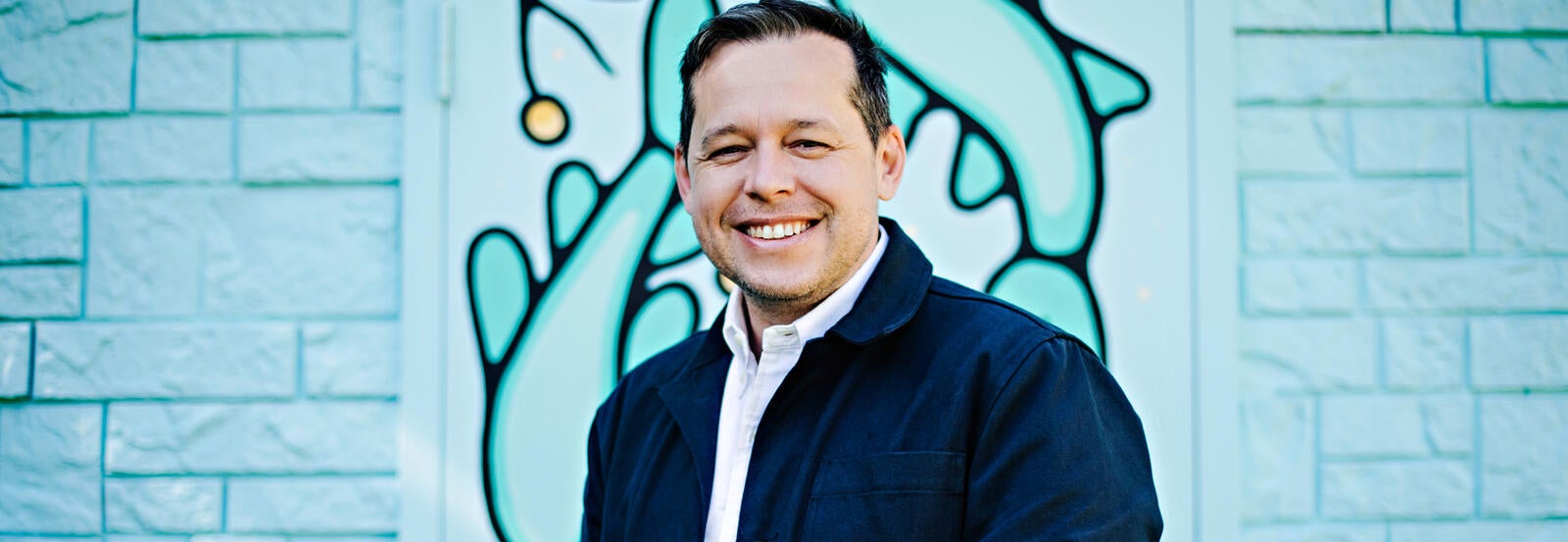
Across Waterloo Region, the archeological record shows traces of longhouses built by the Attawandaron (Neutral), Haudenosaunee and Anishinaabe peoples. These longhouses were not only shelters but centres for learning, creativity and community.
The Longhouse Labs at the University of Waterloo will honour that rich history by celebrating the work of contemporary Indigenous artists. The project will provide makers and curators with access to the leadership opportunities and resources to support their creative scholarship. Waterloo students of all backgrounds and disciplines will have the opportunity to benefit from Indigenous leadership in the arts.
Read the entire article.
Bulletin board
National Day for Truth and Reconciliation at the University of Waterloo
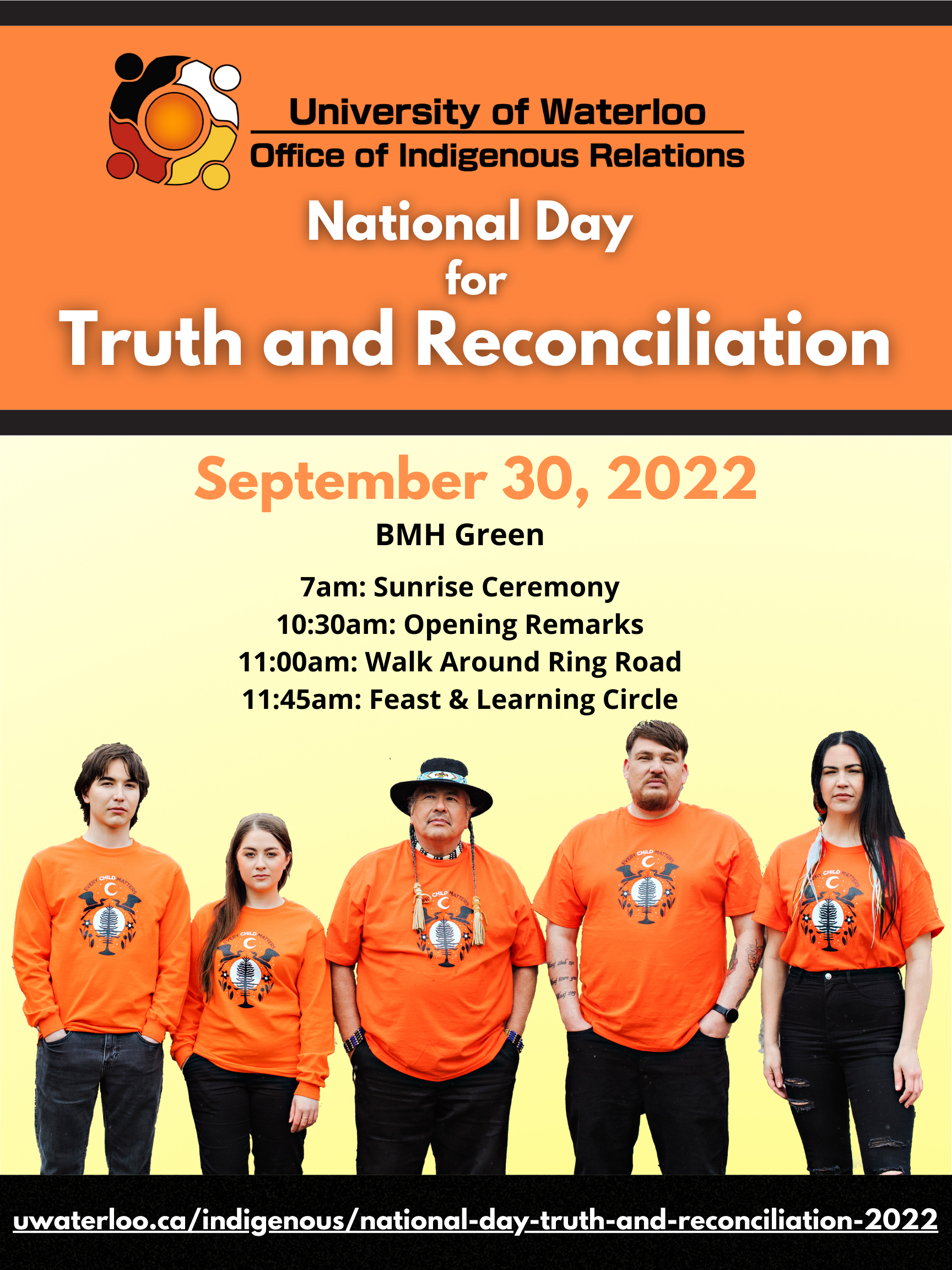
The University of Waterloo will observe the National Day for Truth and Reconciliation in September 30 to honour the lost children and Survivors of residential schools, their families and communities.
Starting at 7 a.m., Elder Myeengun Henry, Indigenous Knowledge Keeper, Faculty of Health, will hold a sunrise ceremony. The morning will also include a walk around Ring Road at 10:30 am followed by a feast, drumming and round dance. All events take place at the at the B.C. Matthews Hall Green. Everyone is invited and people are encouraged to bring their drums and their voices to the events. This event will take place rain or shine. Please dress for the occasion.
Both Vivek Goel, President and Vice-Chancellor of the University of Waterloo and Jean Becker, Associate Vice-President, Indigenous Relations are expected to give brief remarks at the event.
“In the spirit of decolonizing our campus, and showing solidarity with Indigenous communities, we encourage everyone on campus to attend these events, “said Jean Becker, Associate Vice-President, Indigenous Relations. “We invite you to join us to help facilitate reflection on the tragic history and ongoing legacy of colonization and celebrate Indigenous courage.”
“The series of events being held to observe National Day for Truth and Reconciliation are critical to relational and collective efforts to bring awareness to, honour, and implement Indigenous ways of knowing and doing,” said Vivek Goel, President and Vice-Chancellor. “We look forward to participating in these events together as a community, as we commemorate the continued strength, knowledge and excellence of Indigenous peoples, histories and cultures.”
Understanding Indigenous history, developing an awareness of the damaging and intergenerational effects of the Indian Residential School System, and taking responsibility for learning the truth are vital components of the reconciliation process because it allows us all to understand how to move forward together. Please register here to attend the National Day for Truth and Reconciliation events.
Read more on the Anti-racism website
Truth and Reconciliation in Higher Learning Institutions webinar
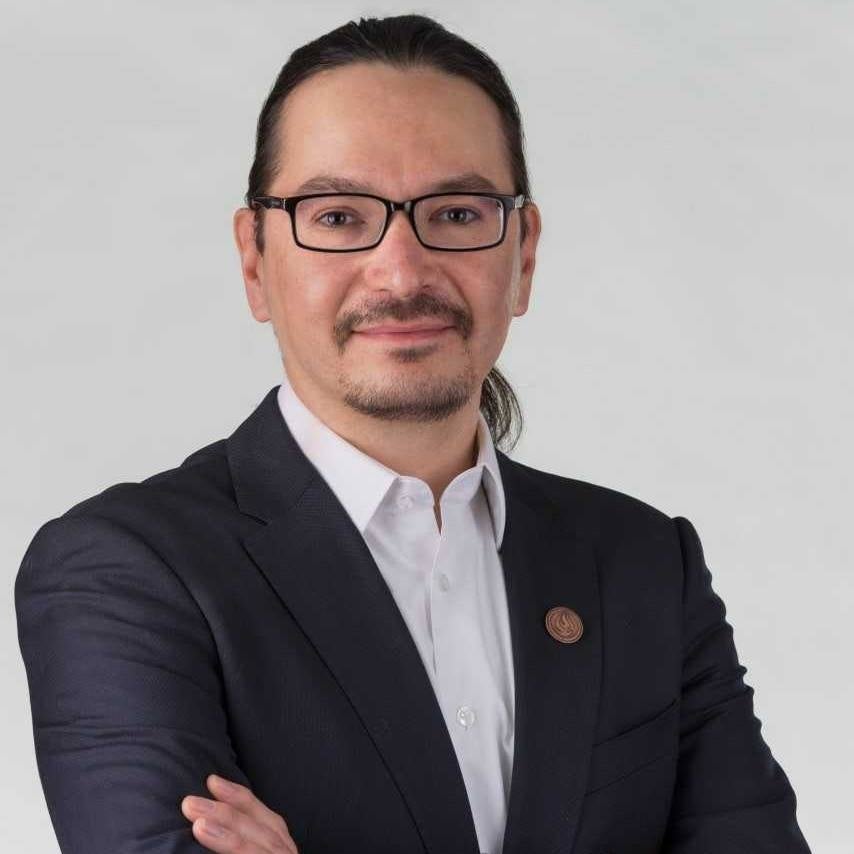
The University of Waterloo will also host a Zoom webinar on Friday at 4 p.m., with keynote speaker Kevin Lamoureux, a faculty member at the University of Winnipeg and a well-known public speaker. He is an award-winning scholar, has written many academic articles, and has taught at several universities. He formerly served as AVP of Indigenous Affairs at the University of Winnipeg and Education Lead for the National Centre for Truth and Reconciliation. Kevin Lamoureux is expected to share his knowledge of truth and reconciliation and what that means to institutions of higher learning. Please register here to attend the Truth and Reconciliation in Higher Learning Institutions webinar.
Robin Stadelbauer appointed as associate director in the Office of Indigenous Relations
Originally published on September 21, in the Fall Issue of the Indigenous Connections newsletter
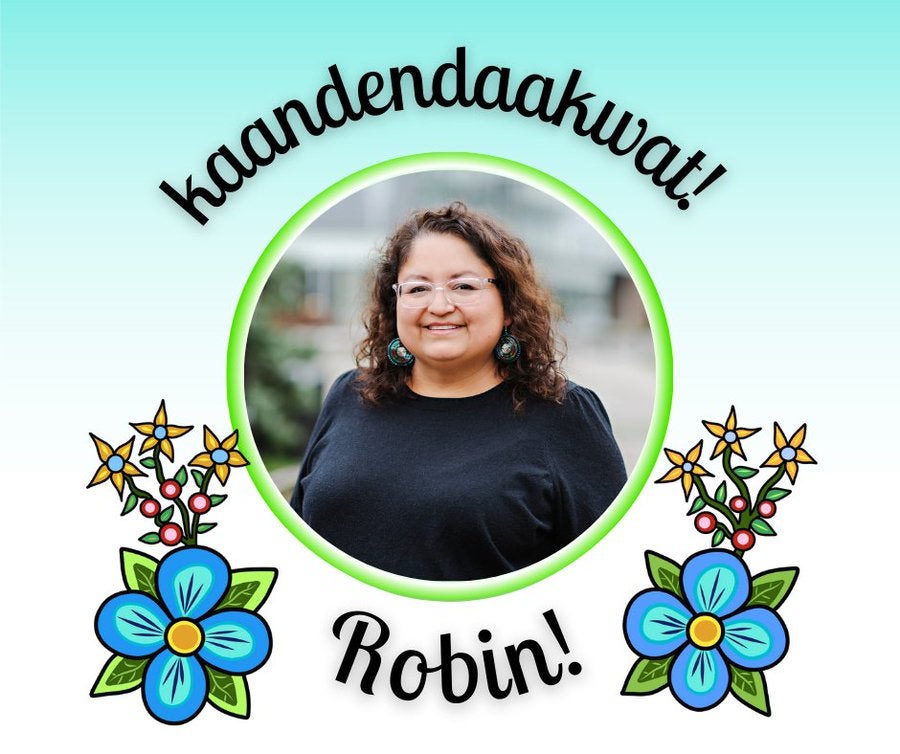
Congratulations, Robin Stadelbauer! It is our heart-felt pleasure to announce that Robin has accepted the position of Associate Director in the Office of Indigenous Relations. In this new role, Robin will support the AVP Indigenous Relations in their strategic vision and leadership, represent the AVP, take leadership on key projects, and is responsible for the daily operations of the Indigenous Relations Office. Read more.
The Equity, Diversity, Inclusion and Anti-racism office’s Fall 2022 Competency and Capacity Building offerings
Registration is now open for the Office of Equity, Diversity, Inclusion and Anti-racism’s Fall 2022 Competency and Capacity Building offerings. The purpose of these offerings is to help University of Waterloo students, faculty, and staff develop tools, strategies, and processes to create more equitable, inclusive, and anti-racist environments on campus. These learning opportunities have been categorized by stage of learning to help campus members become aware of and increase their knowledge on EDI-R related topics to build, incubate, and enhance EDI-R competency and capacity across campus.
Of special note this fall are a new session on Identifying & Uprooting Internalized Racism - Staff & Faculty and a podcast called 'The Curve' with Dr. Christopher Taylor that focuses on sport and the intersections with race, history, culture, and society.
To learn more about the sessions we offer, please visit our website. Register for upcoming sessions.